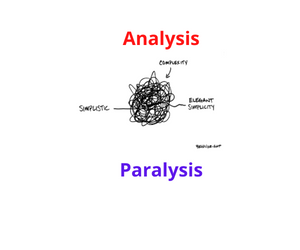“CFTC fines Merrill Lynch $1.2 mln for client fee errors”. This was the headline from an Aug 24th Reuters article. Reading it was a surprise and it wasn’t; after all, fines for banks are almost an everyday occurrence. What was a surprise was the nature of the fine and the detail of the case.
The errors occurred over a period of three years in Merrill’s futures business. The overcharging represented some $500k in revenue, just 0.14% of the exchange fees. The regulator cited Merrill for three serious failings:
- No hiring of qualified personnel to oversee fees
- No complete procedures manuals for staff f until at least April 2013
- No meaningful training for employees
That is a big fine for such a small degree of error. Now of course, if you were wrongly charged, you care little about how limited the occurrence was. This case shows a very diligent regulator, who has looked very hard at a process and then found an inadequate process, lacking on at least two fronts; people and procedures. Their view of the third process component, systems, is not detailed.
A lot of any billing process is driven by Client and Product reference data. Often billing is something left to processes that are relatively manual, often supported by a Excel spreadsheet or an Access database. Both tools likely built by somebody who has long since moved on. I know from days in a Transaction Business that this is tricky; when clients asked for more analysis on non-STP trades, we found that there was a considerable difference between our billing norms and what the SWIFT rules would consider STP vs. non-SP. Too much transparency turned out to be a a dangerous thing and we have to re-thing the whole billing process.
The level of scrutiny from the CFTC needs to be put into the context of the costs of operating a banking business. From the stats gathered by the OpRisk community, we know that a lot of money is lost as a result of operational errors. 66 of the world’s banks share their information about operational errors via The Operational Riskdata eXchange Association (ORX). Their 2011 numbers showed losses at 3% of revenue. And that was only items over $25’000 that were captured.
Lessons to be Learned: Historically large profits have provided cover for wide spread poor processes in financial services. Now, it’s all about margins. Or, as one of my learned friends in the industry has put it, fine margins. Cutting jobs and offshoring, the standard one-two of savings drives, is really not going to save the day, even if it saves a few executives their jobs in the meantime.
In a recent post, I highlighted how an outsourced service was involved in the $2.3B loss at UBS. The CFTC / Merrill case cited above shows how easily large fines can be incurred. The ORX data shows how late the losses from operational errors are.
Improvement lies in better processes; part of that means getting the right talent in Operations and rewarding those people appropriately. Another big part is recognition; Operations professionals need to be properly incentivised and that part of the bank needs to be seen as equally attractive as a place to work.
Previous Posts: Are available on the 3C Advisory website, click here.
Publications:
The Bankers’ Plumber’s Handbook
How to do Operations in an Investment Bank, or Not! Includes all the Blog Posts, with the benefit of context and detailed explanations of the issues. True stories about where things go wrong in the world of banking. Available in hard copy only.
Cash & Liquidity Management
An up to date view of the latest issues and how BCBS guidance that comes into force from Jan 1 2015 will affect this area of banking. Kindle and hard copy.
Hard Copy via Create Space: Click here
Amazon UK: Click here
Amazon US: Click Here
Thanks for your support and thanks to the numerous contributors.
Share on:



